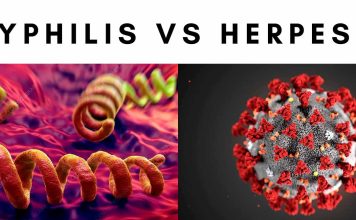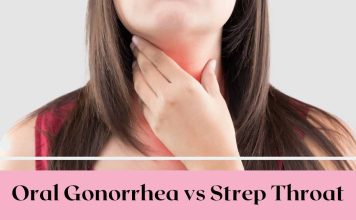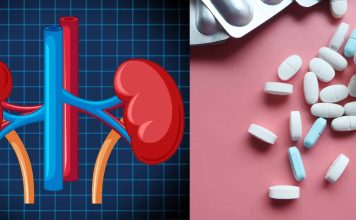Table of Contents
What is Adderall Tongue?
Adderall is used to treat Attention Deficit Hypersensitivity Disorder (ADHD). It can cause few side effects, including some symptoms of the tongue.
Adderall is a stimulant drug mainly used for treating ADHD. It’s also used sometimes for weight loss.
Like most other stimulant drugs, Adderall also causes some side effects. Some of the side effects affect the mouth and tongue region.
If anyone is experiencing the side effects of Adderall (also known as Adderall tongue), consult with your doctor to get rid of it.
This article is focused on how to get rid of adderall tongue as well as some other side effects.
What is ADHD?
ADHD is a neurodevelopmental disorder that occurs in childhood. Though it occurs in childhood, it often lasts till adulthood.
People with ADHD experience trouble concentrating fail to control impulsive behavior.
ADHD – Attention Deficit Hyperactivity Disorder
According to some studies, about 3-10% of school-going children and 25% of college students suffer from acute or severe ADHD.
Sign and Symptoms
Symptoms of ADHD can be noticed in early childhood. For example, children have trouble concentrating and cannot behave properly.
Though it’s common for a child, it progresses over time.
The common sign and symptoms of ADHD may include;
- Daydreaming
- Forget things frequently
- Rushing into tasks
- Climbing in
- chairs and tables
- Loudness
- Interrupting
- Squiring or fidget
- Talking a lot
- Take unnecessary risks
- Make common mistakes
- Cannot resist temptation
- Experience difficulty making friends
Some other ADHD symptoms in adults may include;
- Mood instability
- Low self-esteem
- Impulsivity
- Inattentiveness
Type of ADHD
- Predominantly Inattentive Presentation
- Predominantly Hyperactive-Impulsive Presentation
- Combined Presentation
Causes of ADHD
ADHD is not yet completely discovered. The cause and risk factors of ADHD are not precisely known.
According to some recent studies, ADHD occurs due to genetic factors.
Some other factors may include;
- Brain injury
- Exposure to a toxic environment such as lead exposure during the pregnancy
- Alcohol consumption during pregnancy
- Smoking history
- Premature delivery
- Low birth weight
Read adolescence syndrome
What is Adderall
Adderall is a stimulant drug that is used to treat ADHD.
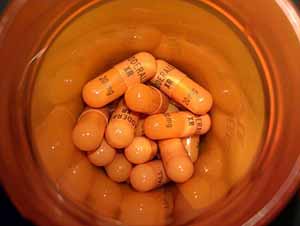
Adderall is a trading name. The active ingredients of Adderall are;
- dextroamphetamine saccharate
- amphetamine aspartate
- dextroamphetamine sulfate
- amphetamine sulfate.
The inactive ingredients of Adderall are;
- colloidal silicon dioxide,
- compressible sugar,
- corn starch,
- magnesium stearate,
- microcrystalline cellulose
- saccharin sodium.
Amphetamine is the drug here. It changes the normal dopamine level. (dopamine is a neurotransmitter that regulates some functions of our brain).
Changing dopamine levels alternate the functions of the brain and helps to get rid of inattentiveness and hyperactivity.
Dopamine also controls our mood, sadness, or happiness. Altering its level and function is the way how Adderall works.
Alternatives of Adderall
Drugs of ADHD fall into two groups, amphetamines and methylphenidates.
Amphetamines medication include;
- Adderall and Adderall XR
- Evekeo
- Dexedrine and Dexedrine XR
- Dextrostat
- Adzenys XR
- Vyvanse
- Dyanavel XR
- ProCentra
- Zenzidi
Methylphenidate medication include;
- Ritalin, Ritalin SR, and Ritalin LA
- Methylin and Methylin ER
- Focalin and Focalin XR
- Concerta
- Daytrana
- Metadate CD
- Quillivant XR and Quillichew ER
Amphetamines and methylphenidate work in different ways.
Amphetamines increase the brain production of dopamine, noradrenaline, and serotonin.
On the other hand, methylphenidate decreases the reuptake of dopamine, noradrenaline, and serotonin. Therefore, increases the concentration of these neurotransmitters.
Low dopamine, noradrenaline, and serotonin are responsible for our moodiness, attention, happiness, and sadness.

Side Effects of ADHD Medications
Though both amphetamine and methylphenidate are stimulant drugs, their side effects are a bit different.
Common Side Effects of Adderall (Amphetamine)
- Headache
- Insomnia
- Tachycardia
- Irritability
- Restlessness
- High blood pressure
Common Side Effects of Methylphenidate
- Insomnia
- Nervousness
- Dizziness
- Nausea and vomiting
- Headaches
- Decrease appetite
- Gradual weight loss
- Tachycardia
- Restlessness
- Irritability
- Abdominal pain
Oral and Tongue Side Effects of Adderall
Both amphetamine and methylphenidate can cause some mouth and tongue side effects, such as dry mouth.
The mouth and tongue side effects of Adderall may include;
- Unusual tongue and mouth movement
- Tongue sucking
- Biting the tongue, lips, and inner cheeks
- Soreness in the tongue
- Teeth grinding (medically termed as bruxism)
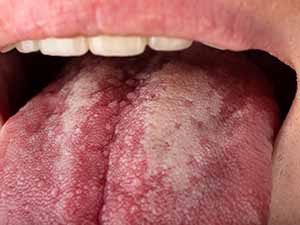
Mouth and tongue side effects are common for stimulant drugs. However, some recent studies about these side effects and the treatment plant for reducing those side effects.
All ADHD drugs show oral side effects. For example, people who are using methylphenidate bite their tongue more often than a normal individual.
Treatment Plan for getting Rid of Adderall Tongue
There is not enough data about the specific treatment of the Adderall tongue. However, the scientists are working on this, and they found some facts that may work to get rid of the Adderall tongue.
As there is no specific medication for treating the Adderall tongue, the doctor provides some instructions to reduce the symptoms.
The treatment of Adderall tongue include;
- Drinking enough water
- Drinking water frequently than drinking a lot at a single time
- Artificial saliva spray, foam, or gel
- Chewing gum (sugar-free)
- Avoid caffeine, tobacco, and alcohol
Dry mouth and other tongue symptoms can be induced by other drugs as well. Consult with your doctor about the side effects you are experiencing.
If the tongue effects are induced by Adderall or other stimulant drugs used for treating ADHD, then there is no option to avoid them.
If the tongue symptoms occur due to other medications, your doctor may change the dose of medicine.
Deficiency of vitamin D and calcium may cause bruxism (teeth grinding). Your doctor may recommend you some tests to make sure if there is vitamin deficiency.
Consult with your doctor to get rid of side effects and other possible complications.
Emergency Situations
If you experience something unusual in the tongue, then please talk to your doctor.
Adderall has some serious side effects if there is overdose, such as tachycardia, abnormal heartbeat, high blood pressure. Call for emergency health care if it occurs.
Stay positive and do not hide any medical history from your doctor to get the best treatment.
Treatment for Reducing Other Side Effects of Adderall
- Dizziness – It’s often caused by too much medication and unhealthy sleep habits. Talk to your doctor; he may change the medication or alter the dose of it.
- Dry mouth – Drinking enough water frequently is the best remedy for it. You can also use artificial spray, foam, or gels.
- Headache – Adderall and other stimulant drugs often cause headaches. It occurs in more intensity if you take the medication on an empty stomach.
- Loss of appetite – according to a study, 11% of Adderall users experience weight loss due to loss of appetite. Sometimes this drug is used to treat obesity. Talk to your doctor if you are not okay with it.
- Mood swing – Adderall alters the concentration of dopamine, noradrenaline, and serotonin. It’s common to experience mood swings during the early phase of Adderall use.
- Nausea and vomiting – Adderall is recommended to take in the morning after breakfast. If you do not follow the instructions, you may feel nausea and vomiting. Do not take this medication on an empty stomach.
- Difficulty Sleeping – As a stimulant drug, Adderall can cause trouble sleeping. You should take this medication early in the morning after breakfast to avoid trouble sleeping.
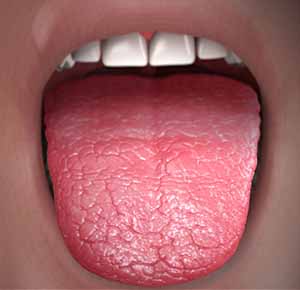
Takeaway
There are many ADHD medications available nowadays. Adderall and other ADHD medications are stimulant drugs.
Adderall and other ADHD medications also cause some side effects, including Adderall tongue.
There is not enough data about specific medication to treat Adderall tongue, but some health instructions may help you reduce the symptoms and pain.
Please consult with your doctor to get rid of an Adderall tongue and follow his instructions properly. If you take this medication properly, you may experience very little or no side effects.
Do not try any medication all by yourself without consulting a doctor.
Last Updated on February 23, 2022 by Learn From Doctor Team


